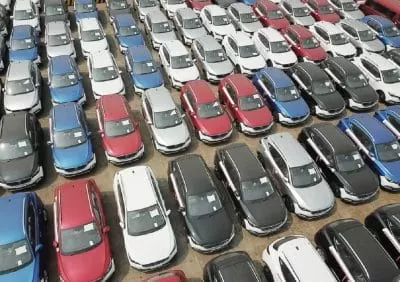In Israel, car owners were met with a surprise this week as the annual vehicle inspection fees saw a significant increase of approximately 23%. This unexpected rise in cost has caused frustration among drivers and has raised concerns about the affordability of owning a car in the country.
The Ministry of Transport announced the increase, citing the need for additional funding to improve the quality of the inspection process and ensure road safety. The new fees will be applied to both private and commercial vehicles, with some exemptions for electric and hybrid cars.
The previous cost for the annual inspection was around 300 shekels, but now car owners will have to pay an additional 70 shekels, bringing the total to 370 shekels. This may not seem like a huge amount, but for many Israelis, it is a significant increase that will have an impact on their budget.
The decision to raise the fees has sparked criticism from car owners and consumer rights groups who argue that the sudden increase is unjustified. They believe that the Ministry should have consulted with the public and stakeholders before making such a decision.
While the increase may seem burdensome for car owners, it is important to understand the reasoning behind it. The Ministry of Transport has stated that the additional funds will be used to modernize the inspection process, which is currently outdated and prone to errors. This will ultimately lead to a more efficient and accurate inspection, ensuring that only roadworthy vehicles are allowed on the roads.
Moreover, the increase in fees will also contribute to road safety measures such as the installation of speed cameras and the improvement of infrastructure. These initiatives are crucial in reducing accidents and fatalities on Israeli roads, which have been a growing concern in recent years.
Despite the initial shock and frustration, it is important to see the bigger picture and the long-term benefits of this increase. The safety of drivers and passengers should always be a top priority, and the Ministry’s efforts to improve the inspection process and invest in road safety measures should be commended.
Furthermore, the increase in fees is not unique to Israel. Many countries around the world have similar annual vehicle inspection fees, and some even have higher costs. In comparison, the new fees in Israel are still relatively low.
It is also worth noting that the increase in fees will not affect everyone. Electric and hybrid car owners will continue to pay the same amount as before, and commercial vehicle owners will only see a slight increase of 10 shekels. This shows that the Ministry is taking into consideration the different needs and circumstances of car owners.
In addition, the Ministry has assured that they will continue to monitor the situation and make adjustments if necessary. This shows their commitment to finding a balance between affordability and safety.
In conclusion, while the increase in annual vehicle inspection fees may have caught car owners off guard, it is a necessary step towards improving road safety in Israel. The additional funds will contribute to modernizing the inspection process and investing in crucial road safety measures. It is important to understand the reasoning behind the increase and to see it as a positive step towards a safer and more efficient transportation system.

